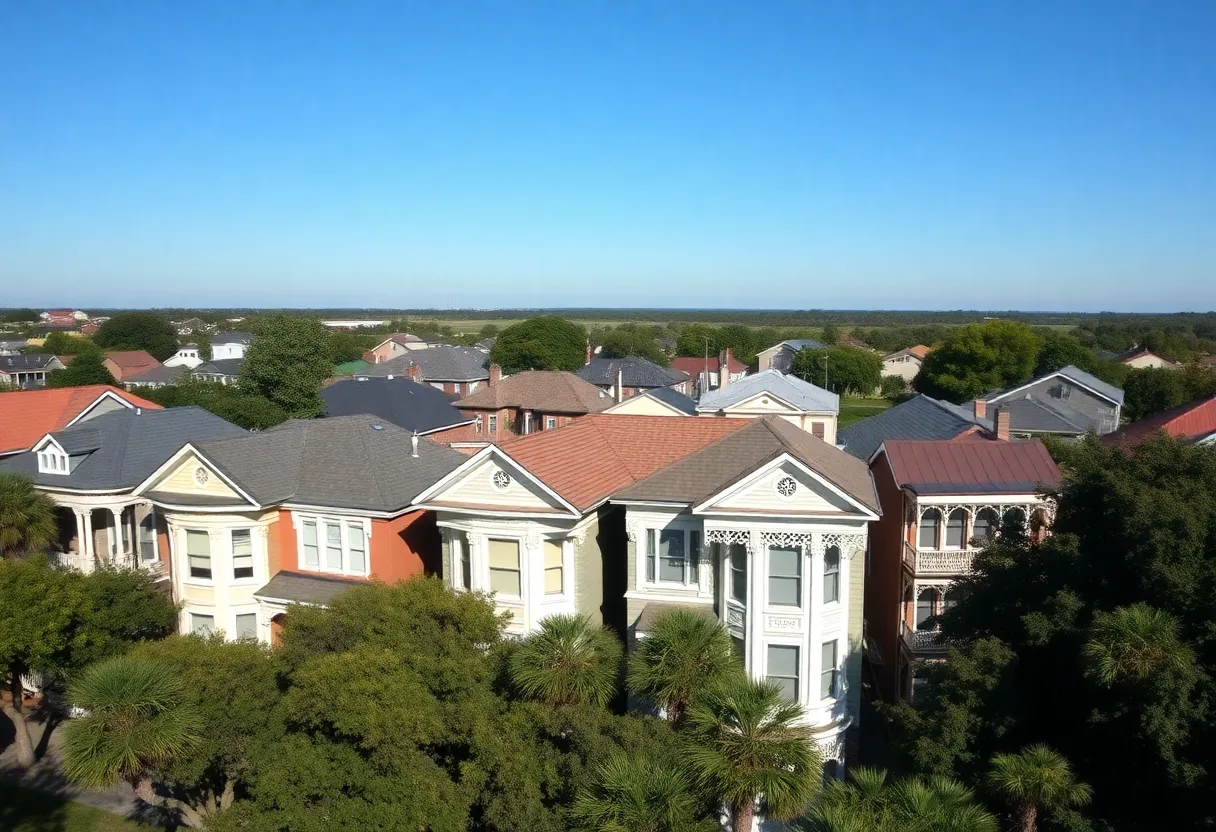News Summary
A recent study reveals that New Orleans ranks last among U.S. cities for residential real estate, with home values significantly below long-term trends. Despite pockets of price increases, a sluggish economy, population decline, and rising costs are creating a challenging environment for buyers. The median sale price remains stable, but affordability concerns persist amid rising insurance and interest rates. Experts are cautiously optimistic about the demand for starter homes and newly renovated properties, all while emphasizing the need for informed decision-making in this volatile market.
New Orleans is facing significant challenges in its residential real estate market, according to a recent study conducted by the University of Mississippi, which ranks the city last among 100 U.S. cities. The study reveals that average house prices in New Orleans are around 14% below their long-term inflation-adjusted trend. In fact, since 2000, New Orleans is one of only ten cities in the study that has seen a sustained decline in house prices when adjusted for inflation.
Currently, inflation-adjusted home prices are over $20,000 lower than they were a decade ago, indicating a marked decrease in property values. This decline translates to an average home price of $132,000 compared to $155,000 ten years ago. Despite these challenges, there have been some instances of price jumps in certain neighborhoods, notably in the 70113 ZIP code, where house prices surged by 48% in early 2024.
In contrast, the housing market in Baton Rouge, while also facing long-term downward trends in inflation-adjusted prices, ranked 92nd in the same study. Baton Rouge exhibited a more stable market in terms of less volatility in home prices. Rents are increasing at a faster pace than inflation in New Orleans, further complicating the housing situation, especially in light of a declining population over the past decade.
Several factors are contributing to the ongoing decline in real estate value in New Orleans, including a sluggish economy, decreasing population, and a post-pandemic market correction. The combination of these issues has resulted in a housing market that remains sluggish, with approximately 6% fewer home sales recorded in the metro area for 2024 compared to the previous year. The median sale price for single-family homes in Orleans Parish remained unchanged at $335,000.
The housing markets in nearby St. Tammany and Jefferson Parishes, however, have seen modest increases in home prices, with gains of 2% and 2.8% respectively. This underscores a disconnect within the regional housing markets as some areas remain more attractive to buyers than others.
Despite the overall decline, there are neighborhoods in New Orleans that are experiencing double-digit increases, attributed to ongoing renovations and investments. This phenomenon demonstrates that while the city as a whole is struggling, pockets of opportunity still exist where revitalization efforts are yielding positive results.
Home ownership costs in New Orleans are being impacted significantly by rising insurance rates and interest rates, which are creating barriers for many potential buyers. Individuals who purchased homes in previous years are now grappling with higher insurance premiums, which pose further challenges to affordability. The sluggish state of the housing market has led to a general malaise among both buyers and sellers, who are finding it increasingly difficult to determine the future of property values in the area.
In an effort to address the affordability crisis, the recent passage of the Housing Trust Fund presents a potential avenue for improving housing options in New Orleans. While the market remains difficult, experts are optimistic about continued demand for starter homes and newly renovated properties, despite the current challenges being faced by potential homebuyers.
The significant drop in property values has raised concerns about the viability of homeownership as a means of wealth creation in New Orleans. The conclusions drawn from the University of Mississippi study stress the need for informed decision-making among policymakers, homebuyers, and investors as they navigate this challenging housing landscape.
Overall, New Orleans’ real estate market faces a long and difficult road ahead as it works to stabilize and regain momentum in the face of numerous economic challenges.
Deeper Dive: News & Info About This Topic
HERE Resources
Joseph C. Canizaro: A Pillar of New Orleans Real Estate
Tribute to Joe Canizaro: A Pillar of New Orleans Development
Joseph C. Canizaro, Influential Developer in New Orleans, Passes Away
Historic Bayou St. John Loft Hits Market
Louisiana’s Housing Market Faces Affordability Challenges
Deutsche Pfandbriefbank Exits U.S. Market Amid Challenges
Rêve Realtors Expands with New Office in Covington
Teenager Victim of Brutal Homophobic Attack in New Orleans
Rising Costs Challenge Living Standards in Louisiana
Historic Uptown New Orleans Home Achieves Record Sale
Additional Resources
- NOLA: New Orleans Real Estate Market Rank
- Wikipedia: New Orleans
- Realtor: John Goodman New Orleans Home Price Cut
- Google Search: New Orleans real estate
- Newsweek: Sale Sign in New Orleans
- Google Scholar: New Orleans housing market
- Biz New Orleans: Pivotal Point in Real Estate Market
- Encyclopedia Britannica: Real Estate
- NOLA: Housing Market Price Drops in 2024
- Google News: New Orleans housing market 2024

Author: STAFF HERE NEWORLEANS WRITER
The NEW ORLEANS STAFF WRITER represents the experienced team at HERENewOrleans.com, your go-to source for actionable local news and information in New Orleans, Orleans Parish, and beyond. Specializing in "news you can use," we cover essential topics like product reviews for personal and business needs, local business directories, politics, real estate trends, neighborhood insights, and state news affecting the area—with deep expertise drawn from years of dedicated reporting and strong community input, including local press releases and business updates. We deliver top reporting on high-value events such as French Quarter Festival, New Orleans Jazz & Heritage Festival, and Essence Music Festival. Our coverage extends to key organizations like the New Orleans Chamber of Commerce and Greater New Orleans, Inc., plus leading businesses in energy, healthcare, and education that power the local economy such as Entergy, Ochsner Health, and Tulane University. As part of the broader HERE network, including HEREShreveport.com, we provide comprehensive, credible insights into Louisiana's dynamic landscape.

